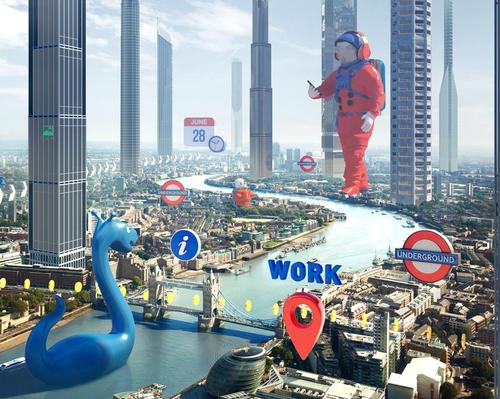17 Sep 2019
Scape aims for city-wide AR through data gathering initiative
BY Andy Knaggs

UK technology company Scape Technologies has gathered street-level data for 100 cities around the world, that it says can be used to create a "new baseline for 3D mapping" and enable city-wide augmented reality applications.
The collection of more than two billion images has been undertaken by the company's local teams, and will help the transition to electronic devices of the near future, in which cameras don't just take pictures but actually see.
This technology will increasingly be used in self-driving vehicles, AR headsets, delivery robots and drones, all of which need to interpret the physical environment in more detail than ever before.
Scape believes therefore that a "new class of map" is required ‒ one that is "image-centric and can be used by devices to understand where they are and what's around them".
Cities included in Scape's project so far include London, Manhattan, San Francisco, Rio de Janeiro, Sydney, Paris, Moscow and Tokyo. The company said the images will be processed by its Vision Engine world-scale mapping pipeline, which builds and references three-dimensional HD maps from ordinary images, in the cloud.
The Scape system is different to Google's Street View, said Scape co-founder and CEO Edward Miller in that Google's system was built for humans to be able to visually identify locations, while the new data is intended as a "map for machines".
Interviewed in PC Mag, Miller was asked what Scape was doing differently to Pokemon Go's landmark AR app. He answered: "That app generated a large proportion of the revenue in AR today, so it's understandable how much attention it received. But do you remember the trailer they ran when the app first got released? The trailer promised full-scale AR and painted a picture of the world and what it could be.
"Essentially, I believe Scape can fulfil that potential and bring it to life, going much further than they were able due to the constrictions of GPS. We'll be using not only cloud-based map generation, but deep semantics and networked devices to provide a true city-scale AR future."
Close Window